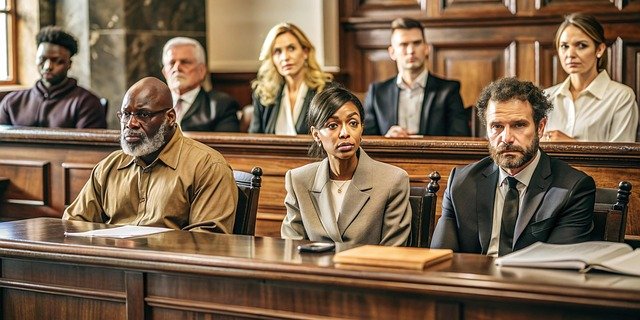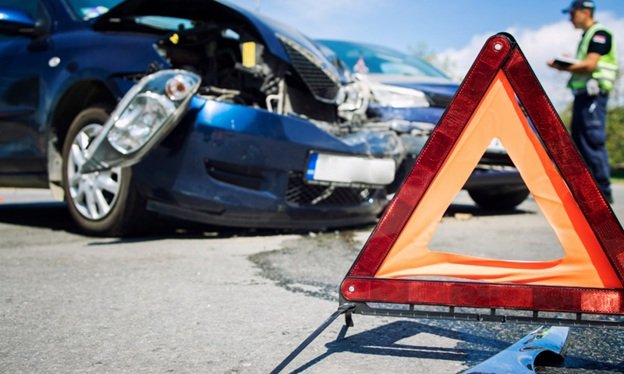
Motorbike Accident on the road with a car
Car vs. motorcycle accident cases are especially devastating to the victim and their family. After a serious accident, a lot is on the line: your health, the future of your family, and your livelihood. You must find an experienced lawyer who knows how to win car vs. motorcycle collision cases. In this blog, we’ll explain how fault is determined in car vs. motorcycle collisions and show you how to find a top lawyer for your case.
What are the Common Car-Motorcycle Collisions?
- A Motorcycle Being Brushed By a Passing Vehicle
- A Motorcycle Being Hit By a Driver Turning Right, and
- Being Hit By a Driver Turning Left.
In all three of these kinds of collisions, the driver can be at fault, so also can the motorcyclist.
Potential Liable Parties in a Car Vs. Motorcycle Collision
Before there can be any compensation for injuries, you must recognize the party or parties who are legally responsible for a car-motorcycle accident. It is in your best interest to consult an attorney to conduct a thorough investigation to decide who is at fault.
Some of the likely liable parties include:
- The driver of the car was involved in the crash.
- The motorcyclist was involved in the crash.
- The government authority is responsible for the maintenance of the highway where the collision was triggered by a road hazard.
- The maker of a vehicle or a motorcycle.
- The car or a motorcycle rental business.
- The repair shop responsible for inspecting, fixing, and maintaining a vehicle or a motorcycle.
To seek compensation, the jury must first decide who is at fault. This may mean that more than one party is liable for the damage.
The Elements of Negligence: Car Vs. Motorcycle Collision
To win in a personal injury lawsuit, you’re going to have to prove the other driver (car driver or motorcyclist) was reckless. Forensic animation can be your major tool to prove your point in the court. Establishing a legitimate argument allows you to indicate the following four elements:
Duty of Care
Under the doctrine of the duty of care, an individual is held to use due care when engaging in a particular activity. In a car versus motorcycle collision, it can be argued that the driver of the car owed the motorcyclist a duty of care; however, one may point out that the motorcyclist also has to exercise reasonable precautions when operating his or her vehicle. As such, he or she also breached this duty.
Breach of Duty
The second element of negligence is a breach of duty owed by the defendant to the plaintiff. In-car versus motorcycle collisions (and any other type of personal injury claim), means that the defendant has failed to fulfill a legal duty, such as driving safely. The breach of duty must be to the cyclist or motorcyclist who was injured for that person to be able to recover damages from the driver. The same goes for the driver who is looking to win compensation from a motorcyclist who breached his/her duty.
Causation
Causation is perhaps one of the most difficult elements from a legal standpoint to prove. Depending on the jurisdiction, various tests may be used to determine causation. These tests range from the relative risk test, which simply requires a showing that your injury was more likely than not a result of the other party’s negligence, to the but-for test, which requires proof that your injuries would not have occurred except for the other party’s negligence.
Damages
Damages in an injury case involving car and motorcycle collision are broken into two categories: economic and non-economic. Economic damages are out-of-pocket expenses such as medical bills or the loss of wages from missed work. Non-economic damages include pain and suffering on top of any physical impairment caused by the wreck.
Avoid Being the Guilty Party in an Accident
The best way to prevent being blamed for causing a crash is to obey the rules and regulations set down for drivers and motorcyclists closely. Just as a driver can be held liable for negligence, so can a motorcyclist.
It is important to keep in mind that motorcyclists have the same obligations (care duty) as drivers, according to trollingerlaw.com/car-accident-lawyer/. That implies, if you’re going down the road and you’re going through a stop sign without slowing, and the driver who stopped is going to turn right and hit you, you’re probably at fault for causing a collision.
Policemen are not going to be soft on you even though you are driving a smaller, less efficient vehicle. In reality, being a cyclist can work against you in certain situations. That’s why you must obey the laws of the road and, if you’re in an accident, make sure you have contact details for any witnesses.
Collisions can happen at any time. While some of the accidents are relatively minor, some are catastrophic. If you have been involved in a car vs, motorcycle collision, it is important to know how fault is determined, and how the insurance process works so that you can get the appropriate compensation for you or loved one, in the aftermath of an event that may change your life forever.



